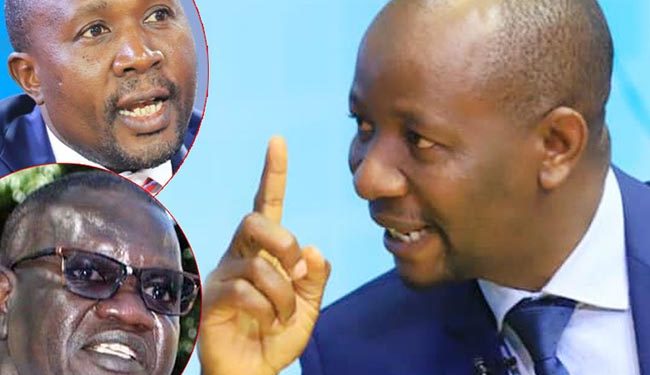In a recent twist of political events, Hon Ibrahim Ssemujju Nganda, the outspoken opposition Member of Parliament representing Kira Municipality and the spokesperson for the Forum for Democratic Change (FDC), finds himself at the center of a rift within the party.
Expressing concerns about alleged financial influences, Ssemujju is now contemplating parting ways with the FDC, a move that has exposed internal divisions.
Ssemujju, known for his vocal stance within the FDC, claims that his decision is rooted in allegations that President Yoweri Museveni, from the rival National Resistance Movement (NRM), has exerted significant financial influence over the FDC leadership.
Specifically, he accuses President Museveni of providing substantial funds to FDC President Patrick Oboi Amuriat and Secretary General Nandala Mafabi.
The controversy surrounding financial dealings within the FDC was initially brought to light by the party’s founder, Kizza Besigye. Despite claiming to possess incriminating evidence, Besigye has yet to present it to the public.
The allegations of Museveni’s financial involvement have led to a deepening divide within the once- powerful unified opposition establishment.
Besigye and his loyalists, including Ssemujju, have since formed a warring faction headquartered at Katonga Road, while the mainstream party remains at Najjanankumbi.
Efforts are reportedly underway to reconcile the two factions, with FDC leader Amuriat revealing ongoing initiatives.
However, radical members like Ssemujju have dismissed reconciliation attempts, insisting that they cannot align themselves with what they perceive as Museveni’s influence.
As a consequence of his dissent and accusations, Ssemujju faced disciplinary actions within the FDC, resulting in his suspension. This move has further heightened tensions within the party ranks.
In a surprising turn of events, Ssemujju now cites the party’s constitution as a barrier preventing his immediate departure.
Despite expressing his intent to leave, he claims that the constitution currently restricts such a move. However, he hints at revisiting this decision next year, leaving the future of his political allegiance uncertain.
The internal strife within the FDC raises critical questions about the impact of financial influence on political dynamics and the potential disruption of the opposition party’s cohesion.
As Ssemujju grapples with the complexities of party loyalty and personal convictions, the political landscape eagerly awaits the resolution of this unfolding saga within the FDC.





